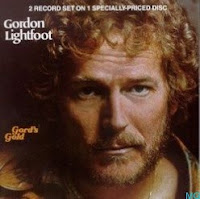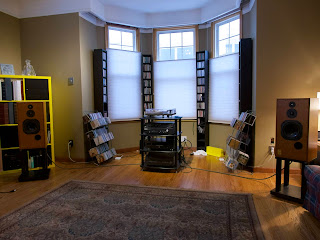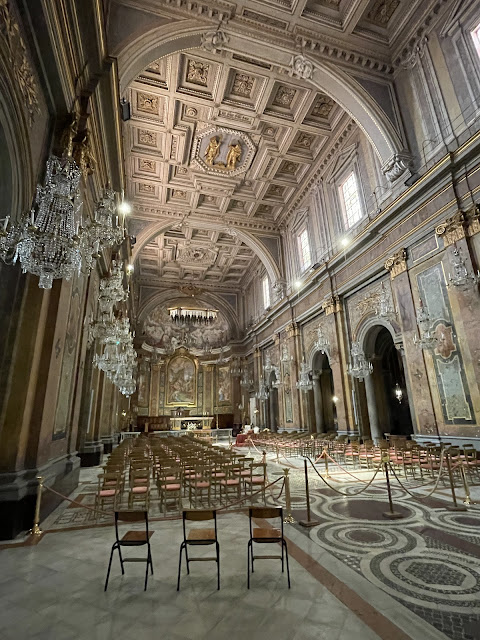Bards, Ballads and Beauty
Words are important particularly when they tell a story. Stories hold interest because they articulate some kind of truth about life, sometimes our own life, sometimes of those we might know or identify with and increasingly of the family of humanity itself.
When I was still very young the hippie generation was growing up just ahead of me. There had been a subculture of protest for at least thirty years prior. Even in the 1920's there were a fairly large number of adherents to socialism and communism. In the 1930's, however, in the face of the Great Depression it was not ideology that drove people's concerns but desperation. The prairies had become a "dust bowl" driving people from the land. John Steinbeck's famous novel, "The Grapes of Wrath", chronicles something of this experience.
 The father of the musical expressions of the concerns of working people in the United States was Woody Guthrie. In the 1960's his songs rang true for a new generation who had lived in the shadow of the results of World War II and in the social straight jacket of the Cold War. The leading social issue of the day in the United States was (and perhaps still is to some degree) segregation, a social system that offered different access to social goods according to race. In 1937 a famous jazz concert occurred in Carnegie Hall in New York led by Benny Goodman. The band was racially mixed. Culturally, this may have been the start of change.
The father of the musical expressions of the concerns of working people in the United States was Woody Guthrie. In the 1960's his songs rang true for a new generation who had lived in the shadow of the results of World War II and in the social straight jacket of the Cold War. The leading social issue of the day in the United States was (and perhaps still is to some degree) segregation, a social system that offered different access to social goods according to race. In 1937 a famous jazz concert occurred in Carnegie Hall in New York led by Benny Goodman. The band was racially mixed. Culturally, this may have been the start of change.
This segregationist social structure put many Americans at a disadvantage. The United States Supreme Court began the change in a decision called Brown v. Board of Eduction in 1954. Eventually this transformed into two different but related social issues: desegregation and integration. Forced integration of schools became a flash point in the 1960's.
The threat of nuclear war also played heavily on the public psyche. By the 1960's both Russia and the United States had accumulated sufficient weapons to destroy the population of the world several times over. Increasingly the world was not making sense.
In the Toronto I was growing up in part of this movement was being expressed in a then seedy part of town called Yorkville -- yes, that Yorkville, the one with all the trendy shops now.
 Joni Mitchell, Buffy St. Marie, Ian & Sylvia Tyson, Gordon Lightfoot, Robbie Robertson (later of "The Band") and Neil Young all had stints at the coffeehouses that were spread around Yorkville. Internationally the Beatles also had a significant role to play as well as the many musicians who came to Woodstock in 1969. And that's about when it peaked.
Joni Mitchell, Buffy St. Marie, Ian & Sylvia Tyson, Gordon Lightfoot, Robbie Robertson (later of "The Band") and Neil Young all had stints at the coffeehouses that were spread around Yorkville. Internationally the Beatles also had a significant role to play as well as the many musicians who came to Woodstock in 1969. And that's about when it peaked.
Only a few years later a US president was very nearly impeached, Israeli athletes were assassinated at the 1972 Olympic Games in Munich and OPEC formed and raised the oil price causing the first oil crisis. The free love that had been advocated as the antidote to a militarized world also saw limits. In 1981, the US Centres for Disease Control had identified AIDS. The naivety of the peace movement was swept away to a large degree by the increasingly complex world that was washing onto everybody's shores.
Sometimes it is desperation that brings us great art and important messages. The bard or the poet has a noble mission. In the free and open society we live in, however, that freedom can also be simple license. Stories are powerful. Words are important. They can enrich us or they can also hurt us. Holding on to a story too long can lock us into a way of living that leads to spiritual death and conversely hearing the right story can be transformative, help us to heal and become a little more whole, able to accept and live life more fully.
In the 1950's the beat generation (the immediate predecessors to the hippies) recited poetry to a beat. Unless I am mistaken hip-hop or urban music is really much the same. And like the folk musicians of the past, the early hip-hop artists reflected the environment in which they were living.
The challenge I see is in the aspirational aspect of this music. In the end, real human love and a soul honestly searching for and conversing with God are far better aspirations than settling for a too gritty life that restricts our natural desire to be wholly what God has made us to be. It is a service to hear with clarity the struggles of life that too many of us ignore. But to celebrate oppression or to perpetuate it is surely hurtful. And what is more common is to boil down good art into something that is simply more marketable, to "gentrify" it. That's what happened to jazz, to rhythm and blues, rock and roll, to folk and now even to hip-hop. Therefore, choose carefully!
We need bards and poets who listen deeply and with respect to the whole panorama of people's lives and who are articulate enough to share it so that we can be reminded of our obligation to and bond with one another. I think this kind of story telling transcends ideologies which tend to get locked by historical circumstance.
No wonder our society seems to want to keep religion a private affair and yet our faith needs to be lived out every day and have its social as well as personal meaning.
Joni Mitchell, Gordon Lightfoot and Neil Young have managed to have the staying power to be appreciated perhaps more deeply now than when they were initially well known.
The Scriptures, our prayer life and life together in the Church support our own understanding of life but even secular prophets like folk musicians sometimes hold the mirror up to humanity in a way that can help us to live more convincingly a life that is truly Christian.
I hope you find some inspiration from one of my favourite folk musicians, Stan Rogers who gave dignity and hope to so many.
http://www.youtube.com/watch?v=fT-aEcPgkuA
When I was still very young the hippie generation was growing up just ahead of me. There had been a subculture of protest for at least thirty years prior. Even in the 1920's there were a fairly large number of adherents to socialism and communism. In the 1930's, however, in the face of the Great Depression it was not ideology that drove people's concerns but desperation. The prairies had become a "dust bowl" driving people from the land. John Steinbeck's famous novel, "The Grapes of Wrath", chronicles something of this experience.
 The father of the musical expressions of the concerns of working people in the United States was Woody Guthrie. In the 1960's his songs rang true for a new generation who had lived in the shadow of the results of World War II and in the social straight jacket of the Cold War. The leading social issue of the day in the United States was (and perhaps still is to some degree) segregation, a social system that offered different access to social goods according to race. In 1937 a famous jazz concert occurred in Carnegie Hall in New York led by Benny Goodman. The band was racially mixed. Culturally, this may have been the start of change.
The father of the musical expressions of the concerns of working people in the United States was Woody Guthrie. In the 1960's his songs rang true for a new generation who had lived in the shadow of the results of World War II and in the social straight jacket of the Cold War. The leading social issue of the day in the United States was (and perhaps still is to some degree) segregation, a social system that offered different access to social goods according to race. In 1937 a famous jazz concert occurred in Carnegie Hall in New York led by Benny Goodman. The band was racially mixed. Culturally, this may have been the start of change. This segregationist social structure put many Americans at a disadvantage. The United States Supreme Court began the change in a decision called Brown v. Board of Eduction in 1954. Eventually this transformed into two different but related social issues: desegregation and integration. Forced integration of schools became a flash point in the 1960's.
The threat of nuclear war also played heavily on the public psyche. By the 1960's both Russia and the United States had accumulated sufficient weapons to destroy the population of the world several times over. Increasingly the world was not making sense.
In the Toronto I was growing up in part of this movement was being expressed in a then seedy part of town called Yorkville -- yes, that Yorkville, the one with all the trendy shops now.
 Joni Mitchell, Buffy St. Marie, Ian & Sylvia Tyson, Gordon Lightfoot, Robbie Robertson (later of "The Band") and Neil Young all had stints at the coffeehouses that were spread around Yorkville. Internationally the Beatles also had a significant role to play as well as the many musicians who came to Woodstock in 1969. And that's about when it peaked.
Joni Mitchell, Buffy St. Marie, Ian & Sylvia Tyson, Gordon Lightfoot, Robbie Robertson (later of "The Band") and Neil Young all had stints at the coffeehouses that were spread around Yorkville. Internationally the Beatles also had a significant role to play as well as the many musicians who came to Woodstock in 1969. And that's about when it peaked.Only a few years later a US president was very nearly impeached, Israeli athletes were assassinated at the 1972 Olympic Games in Munich and OPEC formed and raised the oil price causing the first oil crisis. The free love that had been advocated as the antidote to a militarized world also saw limits. In 1981, the US Centres for Disease Control had identified AIDS. The naivety of the peace movement was swept away to a large degree by the increasingly complex world that was washing onto everybody's shores.
Sometimes it is desperation that brings us great art and important messages. The bard or the poet has a noble mission. In the free and open society we live in, however, that freedom can also be simple license. Stories are powerful. Words are important. They can enrich us or they can also hurt us. Holding on to a story too long can lock us into a way of living that leads to spiritual death and conversely hearing the right story can be transformative, help us to heal and become a little more whole, able to accept and live life more fully.
In the 1950's the beat generation (the immediate predecessors to the hippies) recited poetry to a beat. Unless I am mistaken hip-hop or urban music is really much the same. And like the folk musicians of the past, the early hip-hop artists reflected the environment in which they were living.
The challenge I see is in the aspirational aspect of this music. In the end, real human love and a soul honestly searching for and conversing with God are far better aspirations than settling for a too gritty life that restricts our natural desire to be wholly what God has made us to be. It is a service to hear with clarity the struggles of life that too many of us ignore. But to celebrate oppression or to perpetuate it is surely hurtful. And what is more common is to boil down good art into something that is simply more marketable, to "gentrify" it. That's what happened to jazz, to rhythm and blues, rock and roll, to folk and now even to hip-hop. Therefore, choose carefully!
We need bards and poets who listen deeply and with respect to the whole panorama of people's lives and who are articulate enough to share it so that we can be reminded of our obligation to and bond with one another. I think this kind of story telling transcends ideologies which tend to get locked by historical circumstance.
No wonder our society seems to want to keep religion a private affair and yet our faith needs to be lived out every day and have its social as well as personal meaning.
Joni Mitchell, Gordon Lightfoot and Neil Young have managed to have the staying power to be appreciated perhaps more deeply now than when they were initially well known.
The Scriptures, our prayer life and life together in the Church support our own understanding of life but even secular prophets like folk musicians sometimes hold the mirror up to humanity in a way that can help us to live more convincingly a life that is truly Christian.
I hope you find some inspiration from one of my favourite folk musicians, Stan Rogers who gave dignity and hope to so many.
http://www.youtube.com/watch?v=fT-aEcPgkuA

